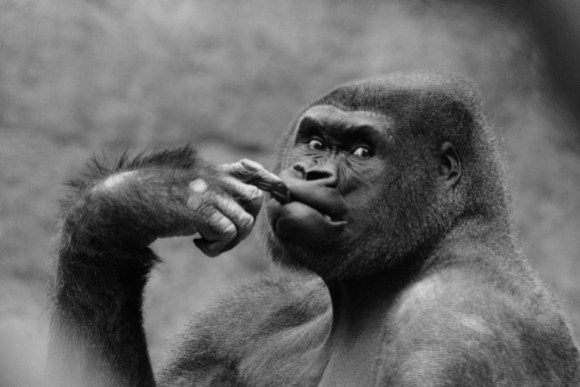
“As I look around the internet today, I think back to when I first discovered Wikipedia. The internet was still a pretty free-wheeling place, and Wikipedia was born out of that spirit of creativity and possibility. The rest of the web has changed a lot—we all use the same few big sites, we do less creating and more consuming. But Wikipedia is still independent, still written by ordinary people, still has that can-do spirit.” –Katherine Maher, Wikimedia Foundation Executive Director
———
Picture this: On the second floor of a quiet coworking space, a group of people are squeezed around a table in a small conference room. There is barely enough room for our chairs. The air is stuffy after hours of batting ideas around, but there is an energetic buzz in the room—and not just from the many empty coffee cups scattered about. The clatter of laptop keys is the only sound except for small moments when someone, bemused at what they’ve just written, reads a line aloud to the group and the room explodes with laughter and new ideas.
A triumphant, “Done!” then came from one corner of the room where Katherine Maher sat—because this was a special day for the team. After writing together for a week, we all knew we needed something new: an insider’s voice to introduce readers to Wikipedia’s bright new future. When we heard that Katherine would be in the same city as us for a few short hours, we asked her to come contribute her unique voice.
It had been a long afternoon of writing for Katherine, but when her breathless “Done!” reverberated off the tight walls of the conference room, we knew this one would be special. The room went silent as we all read, carefully, and saw with satisfaction that there was nothing we would change. Not even a comma.
———
“It’s a little awkward to say this, but consider that fewer than 1% of readers donate to Wikipedia. It’s your generosity that keeps us going. The knowledge that what we’re doing matters, and it matters to people like you. It ensures Wikipedia is here for you when you need us.”
———
Sixteen different messages were tested that day, but we all could have guessed the winner from the get-go. The message that was written in Katherine’s own hand, her honest appeal to Wikipedia donors, rose to the top. She was able to tap into that combination of frankness, humor, and aspiration that makes donors see what Wikimedia means to the world. Every quote in this post comes from Katherine, made in that stuffy conference room back in October.
Creating effective, authentic messages is about a lot more than brainstorming in a hot room. From these initial brainstorm and testing sessions, themes emerge that present opportunities for focused experimentation and refinement. We find inspiration combing through interviews, articles, and the depths of our own love for this project to craft more than a thousand different messages every year (to say nothing of experiments with design, payment options, personalization, and localization). All this testing is in the service of a specific goal: understand why most people love Wikipedia, and give them a powerful reminder to support the internet’s most used non-profit website.
Here’s what we know. Wikipedia is useful to everyday people all around the world. It strives to be nonpartisan and consensus-driven so that normal people can make it better. It is important that Wikipedia will never bombard its readers with ads or paywalls because its integrity is rooted in its independence. People experience Wikipedia in an intimate way—it’s there to answer our silliest and most embarrassing questions and to guide us to profound discoveries—so it’s important that our messages reinforce that relationship. We don’t mince words. We ask real people, like Katherine, to tell donors why they are essential to defending this resource.
Sure, we also use statistics, coding, and some sophisticated software to help us do our jobs, but our creative team’s most magical moments happen when we come together in a room, put our heads down, and tell it like it is.
The next time you see a Wikipedia fundraising banner or receive an email from us, think about it as being part of a real, human relationship—you, us, and Wikipedia—sustaining free knowledge for another year. But don’t take it from me, let Katherine tell you:
“Folks like you help us maintain our integrity, quality, and accessibility. You safeguard our nonprofit mission. Please help us keep this wonderful website free and independent for another year, and do your part to make a better world for years to come.”
https://donate.wikimedia.org
Caitlin Cogdill, Senior Fundraising Engagement Manager, Advancement
Wikimedia Foundation

Can you help us translate this article?
In order for this article to reach as many people as possible we would like your help. Can you translate this article to get the message out?
Start translation